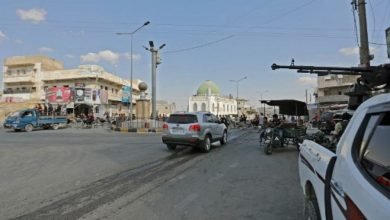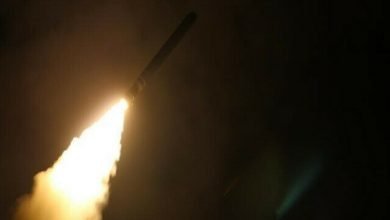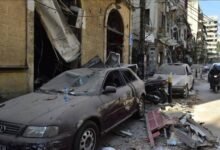middle east
Iraq protests spread to Najaf in fifth day of unrest over services, corruption
[su_label type=”info”]SMA News – Agencies [/su_label][su_spacer size=”10″] Hundreds of Iraqis stormed the airport and halted air traffic in the Shi’ite holy city of Najaf on Friday, extending protests about poor government services and corruption following demonstrations in the southern city of Basra.
Iraq’s top Shi’ite cleric, Grand Ayatollah Ali al-Sistani, expressed solidarity with protesters, saying they faced an “extreme lack of public services” such as electricity in the suffocating summer heat.
“We can only stand with our dear citizens in their demands as we feel their great suffering,” Sistani said through an aide during a Friday sermon heard on live television.
Sistani, who has millions of followers, rarely intervenes in politics but has wide sway over public opinion.
Two airport security officials said hundreds of demonstrators entered Najaf airport’s main hall and walked on to the tarmac. Witnesses said security forces allowed protesters to enter the main airport building.
Earlier in the day, residents took to the streets of the oil city Basra for a fifth straight day and blocked access to the nearby commodities port of Umm Qasr. Protests were also held in the cities of Amara and Nasiriya as public anger mounted over unemployment and delivery of basic services.
Iraqi politicians face growing unrest as they try to form a coalition government after a May 12 parliamentary election tainted by allegations of fraud.
A political bloc led by cleric Moqtada al-Sadr won a majority in the poll on an anti-corruption platform which had appeal across Iraq’s electorate.
In Amara, protesters occupied the headquarters of the provincial governorate, threw stones at branches of the Shi’ite Dawa party and the powerful Badr Organisation, which has close ties to Iran, and beat up policemen, said a security official.
Security forces pushed them back.
A port worker said the road leading into the Umm Qasr terminal near Basra was blocked and trucks had no way of getting in or out. Port officials told employees to go home.
Iraqi Prime Minister Haider al-Abadi held talks with officials in the oil-exporting city of Basra to discuss the unrest.
Protesters hoping to catch his attention stormed the hotel where he was meeting tribal leaders. But he had already left.
The government will quickly address the demands of the protesters, the Council of Ministers said in a statement.
Basra oil officials have said the protests, which have also taken place near major oilfields, have not impacted crude production
Iraq’s top Shi’ite cleric, Grand Ayatollah Ali al-Sistani, expressed solidarity with protesters, saying they faced an “extreme lack of public services” such as electricity in the suffocating summer heat.
“We can only stand with our dear citizens in their demands as we feel their great suffering,” Sistani said through an aide during a Friday sermon heard on live television.
Sistani, who has millions of followers, rarely intervenes in politics but has wide sway over public opinion.
Two airport security officials said hundreds of demonstrators entered Najaf airport’s main hall and walked on to the tarmac. Witnesses said security forces allowed protesters to enter the main airport building.
Earlier in the day, residents took to the streets of the oil city Basra for a fifth straight day and blocked access to the nearby commodities port of Umm Qasr. Protests were also held in the cities of Amara and Nasiriya as public anger mounted over unemployment and delivery of basic services.
Iraqi politicians face growing unrest as they try to form a coalition government after a May 12 parliamentary election tainted by allegations of fraud.
A political bloc led by cleric Moqtada al-Sadr won a majority in the poll on an anti-corruption platform which had appeal across Iraq’s electorate.
In Amara, protesters occupied the headquarters of the provincial governorate, threw stones at branches of the Shi’ite Dawa party and the powerful Badr Organisation, which has close ties to Iran, and beat up policemen, said a security official.
Security forces pushed them back.
A port worker said the road leading into the Umm Qasr terminal near Basra was blocked and trucks had no way of getting in or out. Port officials told employees to go home.
Iraqi Prime Minister Haider al-Abadi held talks with officials in the oil-exporting city of Basra to discuss the unrest.
Protesters hoping to catch his attention stormed the hotel where he was meeting tribal leaders. But he had already left.
The government will quickly address the demands of the protesters, the Council of Ministers said in a statement.
Basra oil officials have said the protests, which have also taken place near major oilfields, have not impacted crude production








